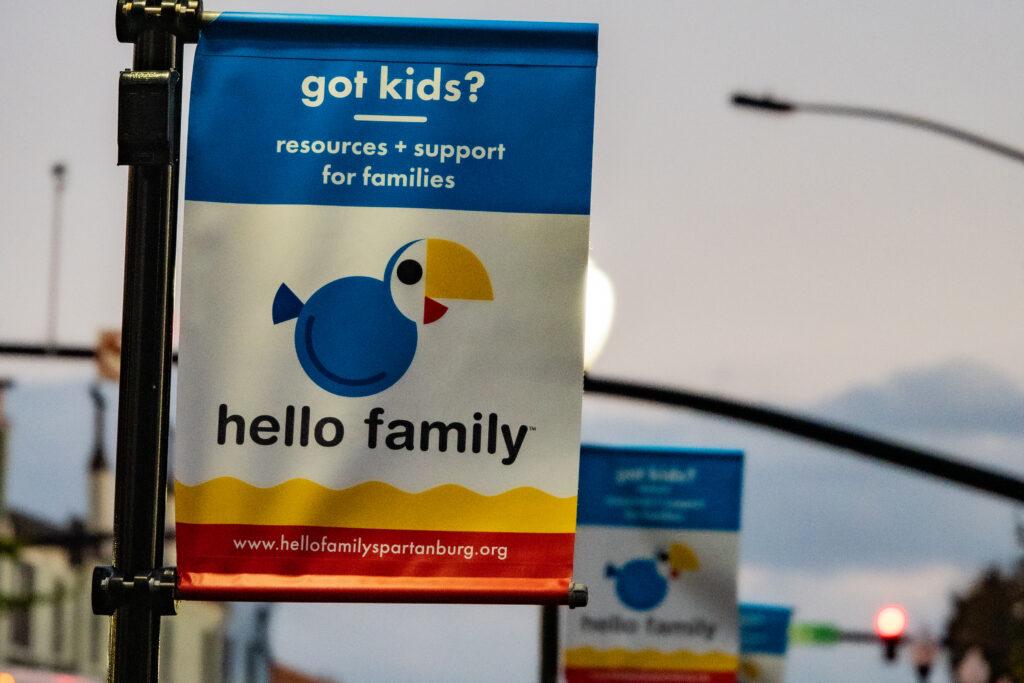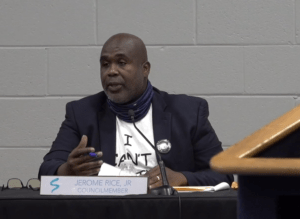
New Beginnings: Looking Forward from the 10-year Wellville Project
An open letter to our Wellville communities, partners and friends: On my hike early this morning, I paused for a moment – immersed in stillness,
The city of Spartanburg, the seat of Spartanburg County, is a city of 39,000 people situated in northwest South Carolina.
Spartanburg has experienced an economic and development boom in recent years. While its history as a textile town is still evident – with many remaining mills converted into apartments, offices and retail space – Spartanburg’s growth is now being fueled by diversified manufacturing and service businesses, including the BMW assembly plant that opened in 1994.
Five local institutions of higher learning both prepare a highly skilled workforce and share a commitment to the well-being of the community. A robust non-profit sector, which enjoys the strong support of the private sector, is relentlessly innovating approaches to making the choice to thrive easy.
According to the National Association of REALTORs, as of late 2021 metro Spartanburg was the area with the most opportunity for homebuilders in the US. New businesses, new housing, new schools, and some of the same old problems – poverty, racial inequities, diseases of despair – create the backdrop against which this small southern city rushes into the next decades of the 21st century.
Spartanburg’s growth hasn’t benefited all equally. And like other communities, it is still contending with past harms, such as urban renewal, which demolished Black-owned businesses and several primarily Black neighborhoods. Along with the new businesses, housing and schools, Spartanburg community leaders know that they will need to address persistent problems – like poverty and racial inequities – for everyone to thrive.
And that’s what they are doing. Over the past decade, we’ve seen people come together across neighborhoods and institutions to speak openly about the challenges, work continuously to expand access to the opportunities, and act creatively to generate the investment and support needed for success.
Sometimes this takes shape through community-wide collaborative efforts, like Live Healthy Spartanburg and Spartanburg Academic Movement. And sometimes it requires a bit of “good conflict,” like the advocacy work of SIREN: Spartanburg Initiative for Racial Equity Now. Neighborhood by neighborhood, Spartanburg is a remarkable example of change from within.
The story of Hello Family illustrates Spartanburg’s collaborative culture. Shortly after Spartanburg was selected to be part of Wellville, a team of community leaders got together and shared what they most hoped to achieve by the end of the project. One of them was Spartanburg’s current city manager, who asked: “What if every child in Spartanburg showed up at school ready to learn?”
With a lot of persistence – and a lot of social capital – the team expanded, the investment came through, and Hello Family was fully launched in 2022. An alliance of over 60 partnered organizations is providing a continuum of evidence-based services to young children and their families, free of charge to all who live in the city. The effort is producing community-wide improvements in full-term births and healthy birth weights, reduced neonatal intensive care admissions, and other measures.
Hello Family is also a model for aligning goals, investments and systems. Program providers, investors, government and other stakeholders are connected through a set of shared outcomes. And the effort is financed through an innovative pay-for-success strategy. Investors provide the upfront capital needed to offer the program free to Spartanburg community members, while the City of Spartanburg and other partners agree to specific “outcome payments” if results are achieved.
Following its initial success, Hello Family is now being expanded to the entire county, part of a comprehensive effort led by Spartanburg Academic Movement. The effort, called Movement 2030, has raised $100 million to advance economic mobility and educational attainment in Spartanburg County.

Live Healthy Spartanburg, which has four focus areas, with a committee assigned to each:
Racial equity: In the aftermath of the tumult of the summer of 2020, a heightened awareness of race-based inequities has begun to inform public attitudes and civic action. The City Council adopted a Healing, Reconciling, and Unity resolution, with language apologizing for the city’s racist past. Several council members worked on the resolution with a newly formed citizen watchdog and action group – the Spartanburg Initiative for Racial Equity Now (SIREN). SIREN has also acted to curb gentrification in an historically Black neighborhood and improve voter registration and participation in local elections. In 2022, SIREN and other, allied organizations will continue seeking ways to ensure that those too long ignored are able to participate fully in Spartanburg’s recent and rapid growth.
Early childhood development: After almost seven years of planning and development, all families with newborns in Spartanburg will have access to a continuum of free services that ensure their children show up at the schoolhouse door ready and able to learn. The program, called Hello Family, was conceived in 2014 as part of the Way to Wellville. It will begin serving families and children in January 2022.
Four of the seven programs are being financed through a pay-for-success model. Pay-for-success financing supports the expansion of programs with a track record of helping children thrive, which means the benefits of these programs will now be experienced by every child in Spartanburg, and, over the long-term, by the entire community.

An open letter to our Wellville communities, partners and friends: On my hike early this morning, I paused for a moment – immersed in stillness,

Last Monday the Spartanburg City Council approved unanimously a “Healing, Reconciling and Unity” resolution, acknowledging “the historical antecedents of systemic racism” and apologizing to residents for “racial injustices and long-lasting inequities that have resulted from those policies.” The unprecedented resolution also enumerates specific actions Council members will take, including to “promote racial equity through all policies approved by City Council” and “support community efforts to amplify concerns about racist policies and practices.”

There is so much in our hearts and minds following these tumultuous past few months and intense past few days. This is a moment to consider the causes of the consequences that are now on full display. It’s time to call out what led to such health disparities and what will it take to improve outcomes for all.
Population: 319,785
No Data Found
Land area (sq. mi): 807.93
Median age: 38.2
Median household income
No Data Found
2019 data
Poverty rate
No Data Found
2019 data
High school graduation rate
No Data Found
2015-2019 data
Severe housing problems *
No Data Found
* Percentage of households with at least 1 of 4 housing problems: overcrowding, high housing costs, lack of kitchen facilities, or lack of plumbing facilities (2013-2017).
Adult obesity
No Data Found
*2017 data
Adult smoking
No Data Found
2018 data
* Years of potential life lost before age 75 per 100,000 population.
Years of potential life lost *
No Data Found
* Years of potential life lost before age 75 per 100,000 population. Data covers 2017-2019.
Uninsured *
No Data Found
* Persons under the age of 65 (2019 data)
Per capita Medicare spending *
No Data Found
* As a percentage of insured; does not include uninsured. Data from 2019.
Insurance sources
No Data Found
2019 data
| Cookie | Duration | Description |
|---|---|---|
| cookielawinfo-checkbox-analytics | 11 months | This cookie is set by GDPR Cookie Consent plugin. The cookie is used to store the user consent for the cookies in the category "Analytics". |
| cookielawinfo-checkbox-functional | 11 months | The cookie is set by GDPR cookie consent to record the user consent for the cookies in the category "Functional". |
| cookielawinfo-checkbox-necessary | 11 months | This cookie is set by GDPR Cookie Consent plugin. The cookies is used to store the user consent for the cookies in the category "Necessary". |
| cookielawinfo-checkbox-others | 11 months | This cookie is set by GDPR Cookie Consent plugin. The cookie is used to store the user consent for the cookies in the category "Other. |
| cookielawinfo-checkbox-performance | 11 months | This cookie is set by GDPR Cookie Consent plugin. The cookie is used to store the user consent for the cookies in the category "Performance". |
| viewed_cookie_policy | 11 months | The cookie is set by the GDPR Cookie Consent plugin and is used to store whether or not user has consented to the use of cookies. It does not store any personal data. |